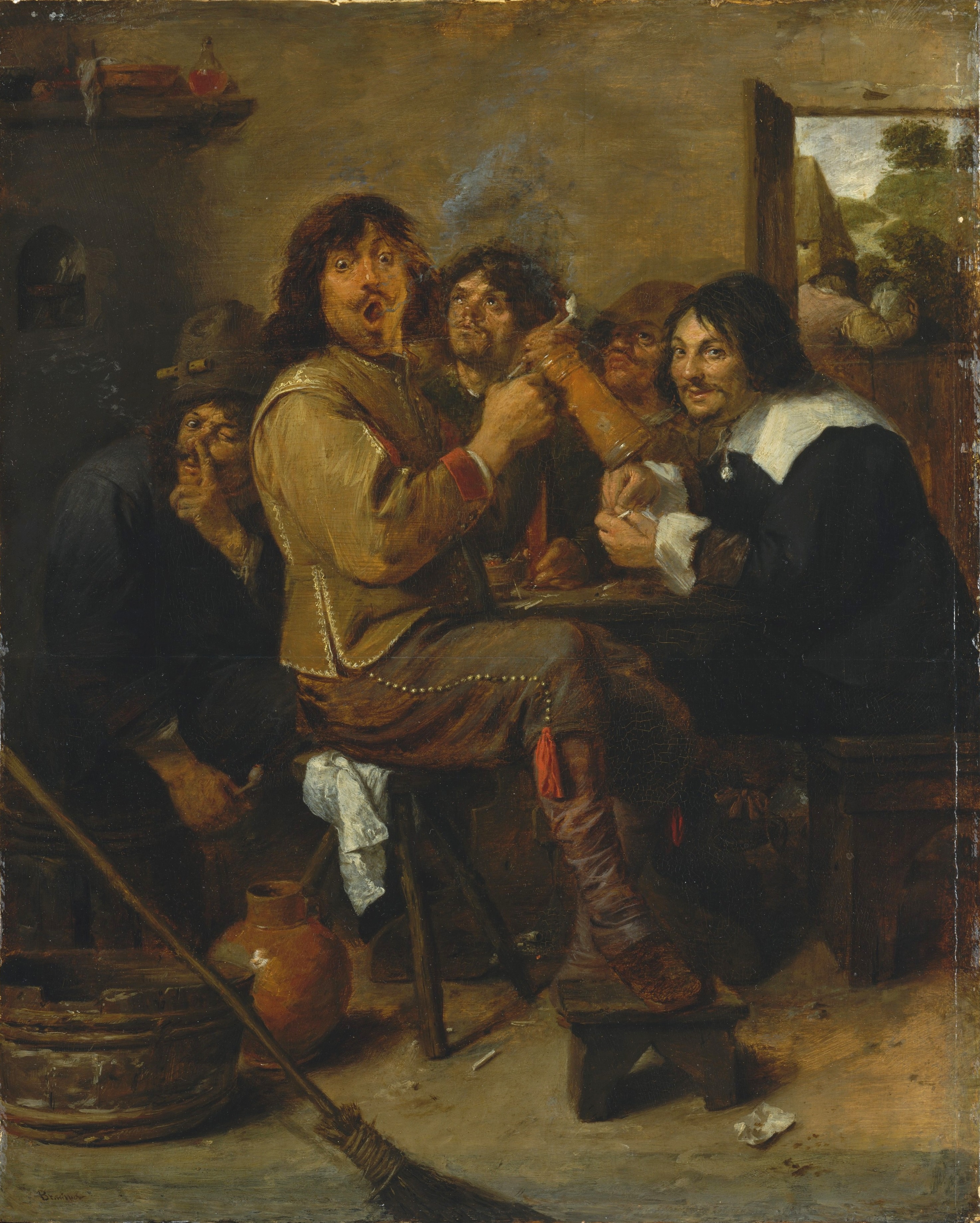|
Social Issues Research Centre
The Social Issues Research Centre (SIRC) is a non-profit think tank working on social and lifestyle issues. It is based in Oxford, but is not part of, and has no relationship to, Oxford University. Organisation and focus SIRC has a ‘social intelligence’ unit, monitoring and assessing social, cultural and ideological trends. SIRC's approach has an anthropological and psychological rather than a sociological flavour. The SIRC has played a central role in advising the government on the development of a "Code of Practice on Science and Health Communication" for communication science issues to the media, which has been criticised for promoting mainstream views and suppressing dissenting voices. Criticism When the SIRC criticised journalists for publishing stories on health scares, the ''BMJ'' asked "how seriously should journalists take an attack from an organisation that is so closely linked to the drinks industry?." The commissioning of the SIRC by pharmaceutical industry group ... [...More Info...] [...Related Items...] OR: [Wikipedia] [Google] [Baidu] |
Think Tank
A think tank, or policy institute, is a research institute that performs research and advocacy concerning topics such as social policy, political strategy, economics, military, technology, and culture. Most think tanks are non-governmental organizations, but some are semi-autonomous agencies within government or are associated with particular political parties, businesses or the military. Think-tank funding often includes a combination of donations from very wealthy people and those not so wealthy, with many also accepting government grants. Think tanks publish articles and studies, and even draft legislation on particular matters of policy or society. This information is then used by governments, businesses, media organizations, social movements or other interest groups. Think tanks range from those associated with highly academic or scholarly activities to those that are overtly ideological and pushing for particular policies, with a wide range among them in terms of th ... [...More Info...] [...Related Items...] OR: [Wikipedia] [Google] [Baidu] |
Body Image
Body image is a person's thoughts, feelings and perception of the aesthetics or sexual attractiveness of their own body. The concept of body image is used in a number of disciplines, including neuroscience, psychology, medicine, psychiatry, psychoanalysis, philosophy, cultural and feminist studies; the media also often uses the term. Across these disciplines, there is no single consensus definition, but broadly speaking body image consists of the ways people view themselves; their memories, experiences, assumptions, and comparisons about their own appearances; and their overall attitudes towards their own respective heights, shapes, and weights—all of which are shaped by prevalent social and cultural ideals. Body image can be negative ("body negativity") or positive (" body positivity"). A person with a negative body image may feel self-conscious or ashamed, and may feel that others are more attractive. In a time where social media holds a very important place and is used fre ... [...More Info...] [...Related Items...] OR: [Wikipedia] [Google] [Baidu] |
Civil Disorder
Civil disorder, also known as civil disturbance, civil unrest, or social unrest is a situation arising from a mass act of civil disobedience (such as a demonstration, riot, strike, or unlawful assembly) in which law enforcement has difficulty maintaining their authority. Engagement According to the U.S. Code, a person is engaged in civil disorder if they - Causes Any number of things may cause civil disorder, whether it is a single cause or a combination of causes; however, most are born from political grievances, economic disparities, social discord, but historically have been the result of long-standing oppression by a group of people towards another. Civil disorder arising from political grievances can include a range of events, from a simple protest to a mass civil disobedience. These events can be spontaneous, but can also be planned. These events can turn violent when agitators and law enforcers overreact. Civil disorder has in history arisen from economic dispu ... [...More Info...] [...Related Items...] OR: [Wikipedia] [Google] [Baidu] |
Drinking
Drinking is the act of ingesting water or other liquids into the body through the mouth, proboscis, or elsewhere. Humans drink by swallowing, completed by peristalsis in the esophagus. The physiological processes of drinking vary widely among other animals. Most animals drink water to maintain bodily hydration, although many can survive on the water gained from their food. Water is required for many physiological processes. Both inadequate and (less commonly) excessive water intake are associated with health problems. Methods of drinking In humans When a liquid enters a human mouth, the swallowing process is completed by peristalsis which delivers the liquid through the esophagus to the stomach; much of the activity is abetted by gravity. The liquid may be poured from the hands or drinkware may be used as vessels. Drinking can also be performed by acts of inhalation, typically when imbibing hot liquids or drinking from a spoon. Infants employ a method of suction wherein ... [...More Info...] [...Related Items...] OR: [Wikipedia] [Google] [Baidu] |
Football Hooliganism
Football hooliganism, also known as soccer hooliganism, football rioting or soccer rioting, constitutes violence and other destructive behaviours perpetrated by spectators at association football events. Football hooliganism normally involves conflict between gangs, in English known as football List of hooligan firms, firms (derived from the British slang for a criminal gang), formed to intimidate and attack supporters of other teams. Other English-language terms commonly used in connection with hooligan firms include "army", "boys", "bods", "Casual (subculture), casuals", and "crew". Certain clubs have long-standing rivalries with other clubs and hooliganism associated with matches between them (sometimes called local derby, local derbies) is likely to be more severe. Conflict may take place before, during or after matches. Participants often select locations away from stadiums to avoid arrest by the police, but conflict can also erupt spontaneously inside the stadium or in th ... [...More Info...] [...Related Items...] OR: [Wikipedia] [Google] [Baidu] |
Stress (medicine)
Stress, either physiological, biological or psychological, is an organism's response to a stressor such as an environmental condition. Stress is the body's method of reacting to a condition such as a threat, challenge or physical and psychological barrier. There are two hormones that an individual produces during a stressful situation, these are well known as adrenaline and cortisol. There are two kinds of stress hormone levels. Resting (basal) cortisol levels are normal everyday quantities that are essential for standard functioning. Reactive cortisol levels are increases in cortisol in response to stressors. Stimuli that alter an organism's environment are responded to by multiple systems in the body. In humans and most mammals, the autonomic nervous system and hypothalamic-pituitary-adrenal (HPA) axis are the two major systems that respond to stress. The sympathoadrenal medullary (SAM) axis may activate the fight-or-flight response through the sympathetic nervous system, w ... [...More Info...] [...Related Items...] OR: [Wikipedia] [Google] [Baidu] |
Festival
A festival is an event ordinarily celebrated by a community and centering on some characteristic aspect or aspects of that community and its religion or cultures. It is often marked as a local or national holiday, mela, or eid. A festival constitutes typical cases of glocalization, as well as the high culture-low culture interrelationship. Next to religion and folklore, a significant origin is agricultural. Food is such a vital resource that many festivals are associated with harvest time. Religious commemoration and thanksgiving for good harvests are blended in events that take place in autumn, such as Halloween in the northern hemisphere and Easter in the southern. Festivals often serve to fulfill specific communal purposes, especially in regard to commemoration or thanking to the gods, goddesses or saints: they are called patronal festivals. They may also provide entertainment, which was particularly important to local communities before the advent of mass-produced e ... [...More Info...] [...Related Items...] OR: [Wikipedia] [Google] [Baidu] |
Flirting
Flirting or coquetry is a social and sexual behavior involving spoken or written communication, as well as body language. It is either to suggest interest in a deeper relationship with the other person or, if done playfully, for amusement. It usually involves speaking and behaving in a way that suggests a mildly greater intimacy than the actual relationship between the parties would justify. This may be accomplished by communicating a sense of playfulness or irony. Double entendres (where one meaning is more formally appropriate, and another more suggestive) may be used. Body language can include flicking the hair, eye contact, brief touching, open stances, proximity, and other gestures. Flirting may be done in an under-exaggerated, shy or frivolous style. Vocal communication of interest can include, for example, * Alterations in vocal tone (such as pace, volume, and intonation), * Challenges (including teasing, questions, qualifying, and feigned disinterest) that may serve to ... [...More Info...] [...Related Items...] OR: [Wikipedia] [Google] [Baidu] |
Recreational Drug Use
Recreational drug use indicates the use of one or more psychoactive drugs to induce an altered state of consciousness either for pleasure or for some other casual purpose or pastime by modifying the perceptions and emotions of the user. When a psychoactive drug enters the user's body, it induces an intoxicating effect. Generally, recreational drugs are divided into three categories: depressants (drugs that induce a feeling of relaxation and calmness); stimulants (drugs that induce a sense of energy and alertness); and hallucinogens (drugs that induce perceptual distortions such as hallucination). In popular practice, recreational drug use generally is a tolerated social behaviour, rather than perceived as the medical condition of self-medication. However, heavy use of some drugs is socially stigmatized. Many people also use prescribed and controlled depressants such as opioids, as well as opiates and benzodiazepines. Common recreational drugs include caffeine, commonly foun ... [...More Info...] [...Related Items...] OR: [Wikipedia] [Google] [Baidu] |
Gossip
Gossip is idle talk or rumour, especially about the personal or private affairs of others; the act is also known as dishing or tattling. Gossip is a topic of research in evolutionary psychology, which has found gossip to be an important means for people to monitor cooperative reputations and so maintain widespread indirect reciprocity. Indirect reciprocity is a social interaction in which one actor helps another and is then benefited by a third party. Gossip has also been identified by Robin Dunbar, an evolutionary biologist, as aiding social bonding in large groups. Etymology The word is from Old English ''godsibb'', from ''god'' and ''sibb'', the term for the godparents of one's child or the parents of one's godchild, generally very close friends. In the 16th century, the word assumed the meaning of a person, mostly a woman, one who delights in idle talk, a newsmonger, a tattler. In the early 19th century, the term was extended from the talker to the conversation of such pe ... [...More Info...] [...Related Items...] OR: [Wikipedia] [Google] [Baidu] |
Etiquette
Etiquette () is the set of norms of personal behaviour in polite society, usually occurring in the form of an ethical code of the expected and accepted social behaviours that accord with the conventions and norms observed and practised by a society, a social class, or a social group. In modern English usage, the French word ' (label and tag) dates from the year 1750. History In the third millennium BCE, the Ancient Egyptian vizier Ptahhotep wrote ''The Maxims of Ptahhotep'' (2375–2350 BC), a didactic book of precepts extolling civil virtues, such as truthfulness, self-control, and kindness towards other people. Recurrent thematic motifs in the maxims include learning by listening to other people, being mindful of the imperfection of human knowledge, and that avoiding open conflict, whenever possible, should not be considered weakness. That the pursuit of justice should be foremost, yet acknowledged that, in human affairs, the command of a god ultimately prevails in ... [...More Info...] [...Related Items...] OR: [Wikipedia] [Google] [Baidu] |
Body Language
Body language is a type of communication in which physical behaviors, as opposed to words, are used to express or convey information. Such behavior includes facial expressions, body posture, gestures, eye movement, touch and the use of space. The term body language is usually applied in regard to people but may also be applied to animals. The study of body language is also known as kinesics. Although body language is an important part of communication, most of it happens without conscious awareness. Body "language" must not be confused with sign language. Sign languages are ''literally'' languages: they have (their own) complex grammar systems, and they also are able to exhibit the fundamental properties that are considered to exist in all (''true'') languages. Body language, on the other hand, does not have a grammar system and must be interpreted broadly, instead of having an absolute meaning corresponding with a certain movement, so it is not a language, and is simply termed ... [...More Info...] [...Related Items...] OR: [Wikipedia] [Google] [Baidu] |








_-_WGA03627.jpg)

